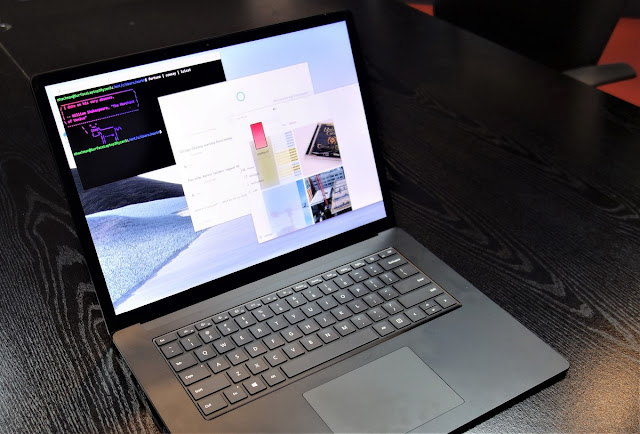Microsoft's late release of Windows 10 2004, now slated for the last week of May, almost certainly means that the fall upgrade will be like 2019's — a minor update sporting few new features and little new functionality.
According to a Microsoft schedule found on the company's hardware ecosystem website, the feature upgrade known both as Windows 10 May 2020 Update and Windows 10 2004 will be released May 26, 27 or 28.
[ Related: Review: Windows 10 May 2020 Update ]
Others, including ZDNet and BleepingComputer, had reported earlier that Microsoft would probably ship Windows 10 2004 during that three-day stretch.
After giving enterprises 30 months, Microsoft moved to major-minor
A May 26-28 launch of Windows 10 2004 would put the feature upgrade on a timetable almost identical to last year's Windows 10 1903, which debuted May 21, 2019, and will be supported until Dec. 8.
With its late-May launch, Windows 10 2004's 18 months of support will end Dec. 14, 2021.
All editions of Windows 10, from Home to Enterprise, receive just 18 months of support for the spring upgrades that are usually tagged as yy03 by Microsoft. The fall updates, normally marked yy09, split support: Windows 10 Home and Pro get the stock 18 months, but Windows 10 Enterprise and Education receive a more generous 30 months.
Until Microsoft extended support for Windows 10 Enterprise and Education to 30 months — a move made in September 2018 — the company had used its twice-annual upgrade cadence to deliver two more-or-less-equally-robust refreshes containing numerous new features and significant enhancements or additions in capability.
But in 2019, after the 30-month support lifespan of Enterprise and Education had been put in place, Microsoft altered its approach. The spring upgrade, 1903, was a feature-and-functionality refresh. But the fall's 1909 was little more than a rerun of its predecessor, albeit with a very small number of additional minor features. (It was so like the long-unused "service pack" concept, which Microsoft had relied on through Windows 7, that older customers immediately labeled it as such.) By October, the two, 1903 and 1909, shared the same code, allowing Microsoft to deliver the latter as a standard monthly update, which users who migrated from spring to fall could install much faster than a typical feature upgrade.
The major-minor cadence of 1903 and 1909 was a hit. Those customers who continued to install a new version of Windows 10 every six months applauded the much faster upgrade of 1909. Enterprises were generally upbeat, too. Even though few organizations moved from 1903 to 1909 — and were able to take advantage of the near-identical nature of the two — they appreciated the new concept because it limited notable changes to just one set a year.
Why Microsoft will do minor again this year
If Microsoft releases Windows 10 2004 during the last full week of the month, the upgrade will be the latest-ever spring refresh. But it's not just the closeness of Windows 10 2004's release date with 1903's on the May calendar that makes for a probable major-minor tempo during 2020.
Top-most on the rationale list has to be the coronavirus pandemic's disruption of business, business processes and business workplaces. Although Microsoft has apparently decided to go ahead with Windows 10 2004 on time, more or less, and rejected calls by some customers as well as Computerworld, to dramatically delay the upgrade, the reasonings for such speculation remain intact: Dealing with a second feature-rich upgrade would needlessly complicate re-opening business and offices, or if a follow-up wave of infections occurs, managing continued remote operations.
Sticking with 2019's major-minor concept would minimize the impact of 2020's second upgrade (2009?), since it would, like 1909, be nothing more than 2004 plus a couple of new features and so install quickly. Theoretically, it should contain few if any problems, seeing as how the core would consist of code tested since February 2019, code that had largely been real-world tested since May 2020.
The only way Microsoft could simplify its servicing practice even more would be to drop the fall upgrade completely.
That won't be necessary, as Microsoft will appear prescient simply by staying with 2019's tempo. Expect the company to make that argument — the chaos of COVID-19 called for a major upgrade-minor update rhythm — even if Microsoft itself prefers that, even if important commercial customers lobbied for that before the pandemic hit U.S. shores.
Also to its advantage — and credit — Microsoft's turn to major-minor last year let it run Windows 10 2004 through nearly 15 months of testing. (Windows Insider testers of 20H1, Redmond-code for 2020's first-half upgrade and what would become 2004, got their first bits on Feb. 14, 2019, and received the most recent on April 30.)
If Microsoft goes major-minor again, the code that will become 21H1 and then later Windows 10 2103 — next year's major -- could boast an even longer testing regimen. The first post-2004 release to Windows Insider was on Dec. 16, 2019, two months earlier than 2004's.
Microsoft has refused to dub the currently-tested successor to 2004 as either this fall's 2009 or next spring's 2103. Instead, when it issued the first code last December, Microsoft said it would sever links between features and specific releases so that it can deliver the former "when they are ready." One result: Microsoft did not have to identify the version these new features would end up in and thus disclose when the next feature-enhanced upgrade would appear.
That gives Microsoft great flexibility in choosing where features fall in a year with multiple feature upgrades. If there is but one feature upgrade — the other a minor "service pack" — then the practice becomes more of an exercise in extended testing, as in 2019. Ultimately, it allows Microsoft to dodge the what's-the-cadence question for months, probably until sometime this summer — say, July like last year, when it tells customers what the fall update will be.
So,
Computerworld's bet that the fall update will be just that —
not a full-featured feature upgrade — could easily be quashed as Microsoft bobs and weaves, waits and ponders how the pandemic is or isn't unfolding, before making a decision.
SHOW MORE POSTS...
GET THIS LINK... .
. .

















